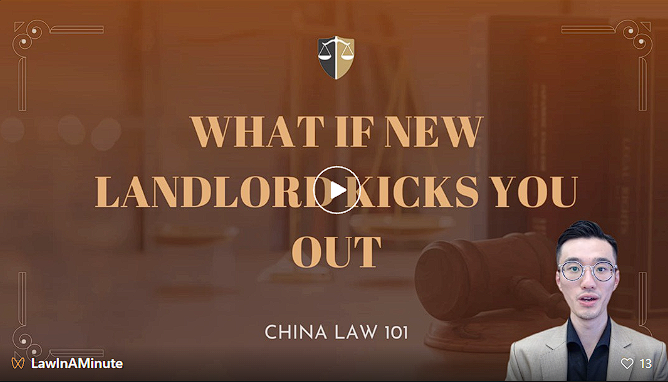
Lease contracts play a crucial role in facilitating the relationship between lessors and lessees. However, certain situations can arise that raise questions about the rights and obligations of both parties. In this article, we will delve into three key issues related to lease contracts: whether the new or old landlord has the right to evict you, the impact of ownership changes on the lessee's ability to terminate the contract, and the treatment of prepaid rent.
If your contract has not expired, even if the landlord sells the house, the new landlord cannot evict you. You have the right to continue living in the house until the contract expires. If your existing or new landlord tries to force you to move away, you will want to first check your contract for a double penalty clause regarding your deposit. Some contracts have a clause that stipulate that if you breach the contract by say, not paying rent on time, the landlord may take your deposit, whereas if the landlord kicks you out before the contract ends, he has to refund you double the deposit.

Regarding whether the landlord may sell the property during a lease, the landlord's transfer of the apartment during the lease term is generally allowed unless the lease contract explicitly prohibits it. Unless there are contractual restrictions or provisions deeming it a breach of contract, the landlord's act of transferring the property does not constitute a violation. Furthermore, a change in ownership does not necessarily hinder the tenant's ability to utilize and benefit from the property during the agreed-upon lease term.

Now, let us turn our attention to the treatment of prepaid rent. It is a common practice for lessors to collect rent in advance, which offers certain benefits, especially for lessees. Prepaid rent allows lessees to counter any claims for rent made by subsequent assignees. Moreover, lessees can use prepaid rent to counter claims for rent from a new owner resulting from a change in ownership. When ownership changes occur, the new owner inherits the rights and obligations of the lease contract, including the right to collect rent. However, it is crucial to note that the new owner can only claim rent that has not been prepaid by the original lessor. Lessees are not obligated to make additional payments to the new owner for rent that has already been prepaid.
Therefore, after the landlord sells the house, they no longer have the authority to collect rent. At this point, you need to discuss with the new landlord and have them specify an account for rent collection. You can then pay the rent to the designated account provided by the new landlord.


